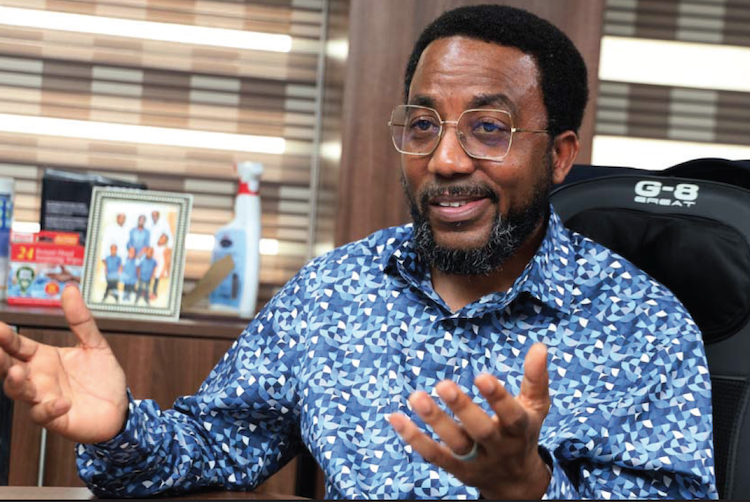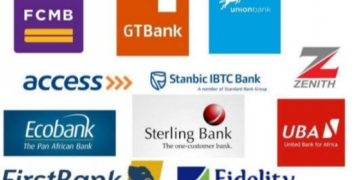The maritime sector under the administration of President Muhammadu Buhari in the last eight years can be described as pleasure accompanied by suffering or regret for importers, clearing agents, operators and other players in the industry.
The industry, being dollar dominated has had its own negative share of naira devaluation that made naira exchange rate go up against the dollar.
Also, scarcity and non- availability of dollars at official rate affected the growth of the sector as operators had to rely heavily on black market to meet their forex demands.
Stakeholders also criticised the administration for shutting down the land borders against import and export for so many years, saying that affected Intra-Africa and cross-border trade across the West Africa corridor, increase in import duty and the absence of a functional national shipping line.
Others include, non-disbursement of the Cabotage Vessels Finance Fund (CVFF), absence of intermodal freight transport, dilapidated port infrastructure among others made the sector retarded in the last eight years.
Though, there are considerable success recorded in the sector such as the investment in the $195million maritime security contract, construction of port access road, increase in the Ease of Doing Business (EoDB) in the port, completion of Lekki deep seaport and improvement in the export logistics chain.
Some of these developments had made Nigeria port surpasses its contemporaries in the West and Central Africa and has made Nigeria water free from crimes through the maritime security project etc.
However, stakeholders differ over the performance level of the president in the sector, while some argued his footprints were indelible, other argued that he performed woefully as he failed to develop the sector.
According to the chairman, Sifax Group, Dr Taiwo Afolabi, the maritime industry in Nigeria has seen significant growth and development in the last eight years.
According to him, the volume of cargo coming in and going out of the country has increased significantly, saying government investments in the sector have resulted in a better and more efficient maritime sector that has created more employment opportunities, improve vessel turnaround time in our seaports and supported trade across the country.
READ ALSO: Buhari Seeks Senate’s Nod To Pay N226bn, $556.8m, £98.5m Judgement Debts
He said, “volume of cargo coming in and going out of the country has increased significantly, though we still record trade imbalances since our import volume is higher than the cargo being exported out of the country. The port terminal concessionaires have Impacted the sector greatly with their massive investment in technology, human capital, cargo equipment and infrastructural facilities.
These investments have resulted in a better and more efficient maritime sector that has created more employment opportunities, improve vessel turnaround time in our seaports and supported trade across the country.
A key milestone is the establishment of bonded terminals across the country. This has greatly assisted in decongesting our seaports, facilitated easier consignment clearing as well as increased revenue generation for the government.
“Without doubt, the ease of doing business programme in the maritime sector is a game changer. With a combination of economic incentives like tax holiday, less bureaucratic processes and massive investment in infrastructure and facilities in the sector, there is a renewed interest in the sector by investors.”
“Let me however reiterate, payment of fees in local currency for the terminal operators as well as access to foreign exchange at the official rate for the purchase of parts and equipment will lessen the burden on the operators and make the business environment friendlier for us to thrive.
Also, the attention that are currently being given to revive and make economically viable seaports outside Lagos. Ports like Warri are coming back to life now. The game plan is to decongest the Lagos ports and create economic port hubs in other coastal locations.
“I have also mentioned that the Federal Government is encouraging investors, both local and international, to invest in inland ports. SIFAX Group has invested in a couple during the lifetime of this administration. The flagship of them is the one located at Ijora, Lagos which we plan to upgrade to a vessel-receiving private port in the future. These inland terminals provide an opportunity for agents and consignees to clear their goods away from the hustle and bustle of a regular port terminal.
“Rail connection to Lagos ports, especially Apapa ports, is also a key achievement of this administration. Evacuate cargoes through rail has helped traffic situation around Apapa, it also makes delivery of these car goes cross the country easier and more cost-efficient. Like you know the Lekki deep seaport has just been commissioned. I mean the first phase while the cargo operation has commenced in earnest. This will open a whole new realm of opportunities in the industry. Jobs will be created while the seaport will contribute substantially to the growth of the country’s economy. Aside this, the construction of the Badagry seaport has also been approved.
But, the acting president, Association of Nigerian Licenced Customs Agents (ANLCA), Dr Kayode Farinto, disagreed with Sifax Group chairman, saying the government performed below 45 percent in the sector in the last 8 years
“Well if you want to look at the present government vis-a-vis performance index, if you want to rate them, I can give them more than 45%. There are a lot of things that we think they should have done, but there are areas that this administration has actually done well that we need to enumerate.
“The only thing is that Nigerian should be talking about the efficiency of our ports. Most of our structures are dilapidated and the various concessionaires that took over the port, very few of them are adding values.
“We must have a clear cut policy in our maritime industry which we do not have presently. Also, we need a Port Development Plan. People are talking about Badagry Deep Seaport, what is government looking at. When Tin-can Island port was designed, it was designed to handle mini- cargo. What is the cargo throughput now? Tin-can Island port is overstretched, even Apapa port is seriously overstretched. We need a port development plan,” he said.
Also speaking, the national president of National Council of Managing Directors of Customs Licensed Agents (NCMDCLA), Lucky Amiwero, said nothing was done in the maritime sector in the last eight years of the present government.
“Buhari came in 2015, scanners at the ports were bad. It was just of recent they replaced the scanners even up till now we still have problems with scanners.
“When we are talking about maritime sector, we are looking at various areas such as transaction in the port, the process and procedure, convention, turnaround time for ship and others. Today, we have one of the most worst port in the world, the port that is not regulated and most of the things we are doing in the port are not legal.
“Customs can wakes up and start its own law, most of the things Customs are doing is not back by law. Looking at the shipping companies, terminals, gridlock and we have most of the expensive ports in the world because the port is not properly regulated,” he said.
He said shipping companies, terminal operators, Customs and everybody do what they feel like, saying someone should tell Nigerians and maritime stakeholders what this government has done to improve the maritime sector.
He added that there is no rail connecting the nation’s ports, adding that there is no rail to Apapa port, Lekki port, Tin Can port and people cannot access their goods in the port and people have the same problem in Port Harcourt and other eastern Ports.
“For eight good years is a wasted years of President Buhari in the maritime sector. I cannot score him 40 per cent. The whole system has been destroyed. We collect POF and all manners of charges and the Finance Minister approved them. They have not done anything with these charges to improve the system at the ports. We run a port that has nothing to do with other port in the world.
“Up til now, they have not been able to disburse the cabotage fund to local ship owners. A lot of things are wrong and nobody is doing anything about it.”




